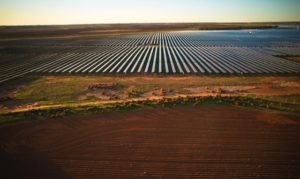There is no shortage of speculation these days about when and in what form battery storage will become economic for consumers. But according to new research from US-based consultancy McKinsey & Company, that time has already come – but only for a chosen few.
According to the report, and illustrated in the graph below, battery storage makes economic sense, right now, for a subset of commercial customers in “each of the four most important applications:” demand-charge management, grid-scale renewable power, small-scale solar-plus storage, and frequency regulation.

The model McKinsey used to come to this conclusion identifies the size and type of energy storage needed to meet goals such as mitigating demand charges, providing frequency-regulation services, shifting or improving the control of renewable power at grid scale, and storing energy from residential solar installations.
Of course, the modelling is based on US data and policy settings – “for more than a thousand different load profiles, dozens of batteries (including lithium ion, lead acid, sodium sulfur, and flow cell), and dozens of electricity tariff and pricing tables” – and so does not necessarily apply elsewhere, but some of the more general findings of the report are well worth noting.
These are:
- That “energy storage already makes economic sense for certain applications. And that “given the complexity” of working out which applications these are, “deployment is more likely to follow a push versus a pull sales model, favoring entrepreneurial companies that find creative ways to access and use … data.”
- That “storage providers must be open-minded in their design of energy-storage systems,” including which chemistry and supporting technologies they choose. These sorts of “tailored approaches”, it says, are likely to find and extract the greatest value.
- That working out how to use battery storage to reduce system-wide costs will “require some thought.” Examples suggested by McKinsey include the adoption of demand response programs and/or tariffs that favour solar self consumption or load shifting; all of which sounds along the lines of what United Energy and GreenSync are trialling on Victoria’s Mornington Peninsula.
Finally, the report says, “the most important implication is this: the large-scale deployment of energy storage could overturn business as usual for many electricity markets.
“In developed countries, for example, central or bulk generation traditionally has been used to satisfy instantaneous demand, with ancillary services helping to smooth out discrepancies between generation and load. Energy storage is well suited to provide such ancillary services,” authors Paolo D’Aprile, John Newman, and Dickon Pinner write.
“Eventually, as costs fall, it could move beyond that role, providing more and more power to the grid, displacing plants. That moment is not imminent. But it is important to recognize that energy storage has the potential to upend the industry structures, both physical and economic, that have defined power markets for the last century or more. And it is even more important to be ready.”










